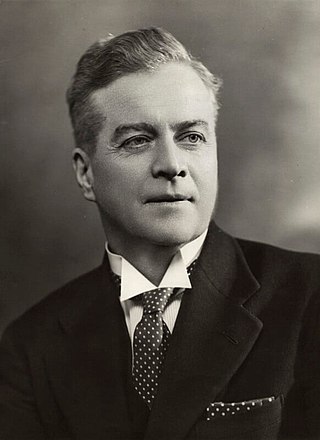Stuttering, also known as stammering, is a speech disorder characterized externally by involuntary repetitions and prolongations of sounds, syllables, words, or phrases as well as involuntary silent pauses or blocks in which the person who stutters is unable to produce sounds.
High-functioning autism (HFA) was historically an autism classification to describe a person who exhibited no intellectual disability but had some difficulty in communication, emotion recognition, expression, and/or social interaction. However, many in medical and autistic communities have called to stop using the term, finding it simplistic and unindicative of the difficulties some austistic people face.

Telerehabilitation (or e-rehabilitation is the delivery of rehabilitation services over telecommunication networks and the internet. Telerehabilitation allows patients to interact with providers remotely and can be used both to assess patients and to deliver therapy. Fields of medicine that utilize telerehabilitation include: physical therapy, occupational therapy, speech-language pathology, audiology, and psychology. Therapy sessions can be individual or community-based. Types of therapy available include motor training exercises, speech therapy, virtual reality, robotic therapy, goal setting, and group exercise.

Speech–language pathology (a.k.a. speech and language pathology or logopedics) is a healthcare and academic discipline concerning the evaluation, treatment, and prevention of communication disorders, including expressive and mixed receptive-expressive language disorders, voice disorders, speech sound disorders, speech disfluency, pragmatic language impairments, and social communication difficulties, as well as swallowing disorders across the lifespan. It is an allied health profession regulated by professional bodies including the American Speech-Language-Hearing Association (ASHA) and Speech Pathology Australia. The field of speech-language pathology is practiced by a clinician known as a speech-language pathologist (SLP) or a speech and language therapist (SLT). SLPs also play an important role in the screening, diagnosis, and treatment of autism spectrum disorder (ASD), often in collaboration with pediatricians and psychologists.
A speech sound disorder (SSD) is a speech disorder affecting the ability to pronounce speech sounds, which includes speech articulation disorders and phonemic disorders, the latter referring to some sounds (phonemes) not being produced or used correctly. The term "protracted phonological development" is sometimes preferred when describing children's speech, to emphasize the continuing development while acknowledging the delay.
Debbie Sell, OBE, FRCSLT is a leading British speech and language therapist.
The Hanen Centre is a not-for-profit registered charitable organization, based in Toronto, Canada. It defines its mission as, “providing the important people in a child’s life with the knowledge and training they need to help the child develop the best possible language, social and literacy skills”.

Voice therapy consists of techniques and procedures that target vocal parameters, such as vocal fold closure, pitch, volume, and quality. This therapy is provided by speech-language pathologists and is primarily used to aid in the management of voice disorders, or for altering the overall quality of voice, as in the case of transgender voice therapy. Vocal pedagogy is a related field to alter voice for the purpose of singing. Voice therapy may also serve to teach preventive measures such as vocal hygiene and other safe speaking or singing practices.
Speech and language impairment are basic categories that might be drawn in issues of communication involve hearing, speech, language, and fluency.

Lionel George Logue, was an Australian speech and language therapist and amateur stage actor who helped King George VI manage his stammer.
Speech Pathology Australia (SPA) is the national peak body for the speech pathology profession in Australia.
Online speech therapy or telepractice is the use of technology to provide speech therapy via high speed internet, webcam, headset with microphone or any other form of communication. Online therapy is a clinical arrangement where the patient and a speech-language certified pathologist communicate and interact face-to-face over the Internet. The session involves a suite of therapeutic exercises including listening, speaking, reading and writing. The recorded videos are assessed by the pathologist to generate an activity report for evaluating progress and usage.
Muriel Elizabeth Morley OBE (1899–1993) was an English speech and language therapist who specialised in the management of cleft palate. She was the president of the Royal College of Speech and Language Therapists.
Developmental verbal dyspraxia (DVD), also known as childhood apraxia of speech (CAS) and developmental apraxia of speech (DAS), is a condition in which an individual has problems saying sounds, syllables and words. This is not because of muscle weakness or paralysis. The brain has problems planning to move the body parts needed for speech. The individual knows what they want to say, but their brain has difficulty coordinating the muscle movements necessary to say those words.
A lisp is a speech impairment in which a person misarticulates sibilants. These misarticulations often result in unclear speech in languages with phonemic sibilants.
Developmental Language Disorder (DLD) is identified when a child has problems with language development that continue into school age and beyond. The language problems have a significant impact on everyday social interactions or educational progress, and occur in the absence of autism spectrum disorder, intellectual disability or a known biomedical condition. The most obvious problems are difficulties in using words and sentences to express meanings, but for many children, understanding of language is also a challenge. This may not be evident unless the child is given a formal assessment.
Elizabeth Catherine Usher AO (1911–1996) was a speech disorders therapist and academic. She was the first person from Queensland to study speech therapy.
Pamela Mary Enderby, FRCSLT is a British Speech Therapist and Professor of Community Rehabilitation at the University of Sheffield.
Margaret Cicely Langton Greene OBE was a British speech and language therapist.
Roganie Govender is a British-South African speech and language therapist. She is a consultant clinical academic speech and language therapist at University College London Hospitals NHS Foundation Trust.




